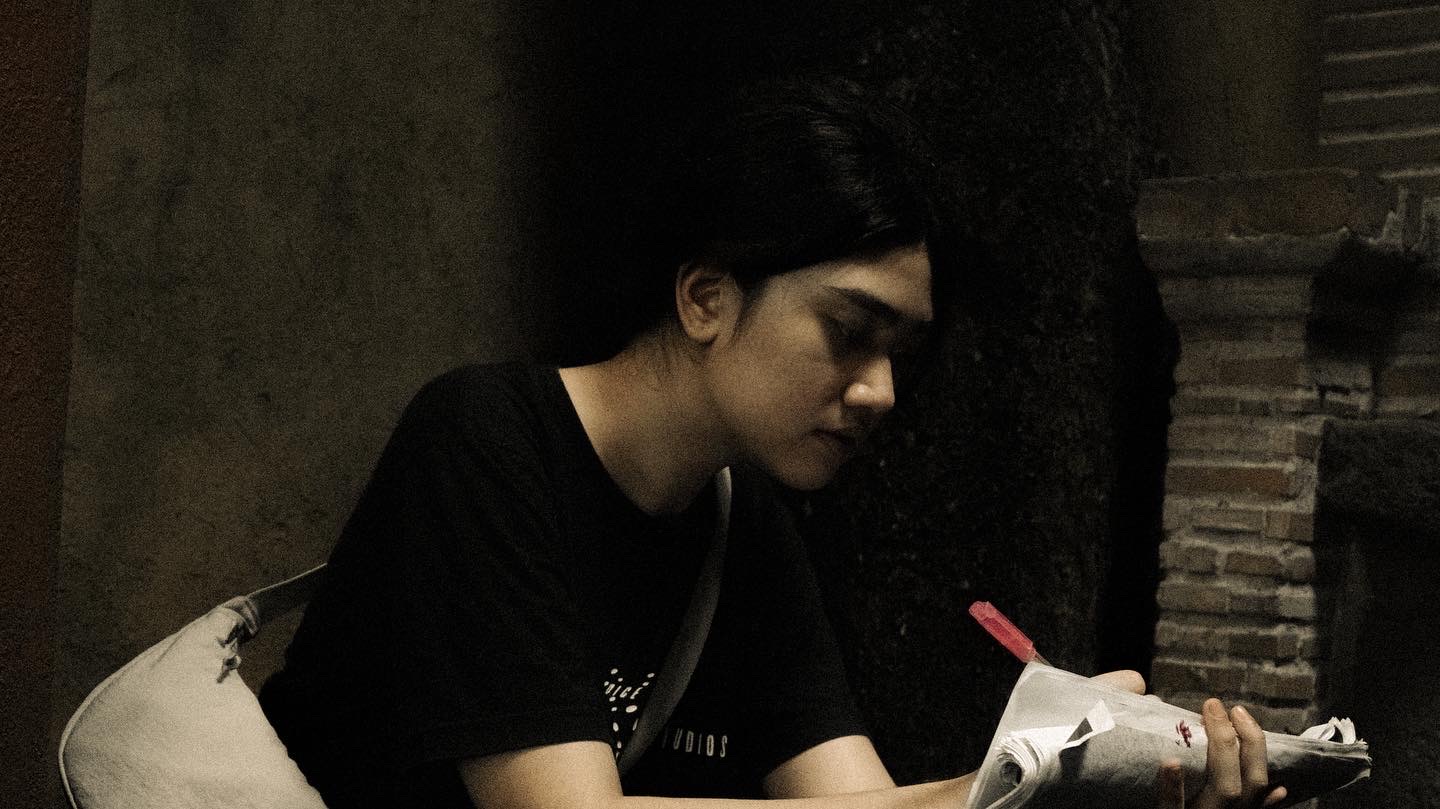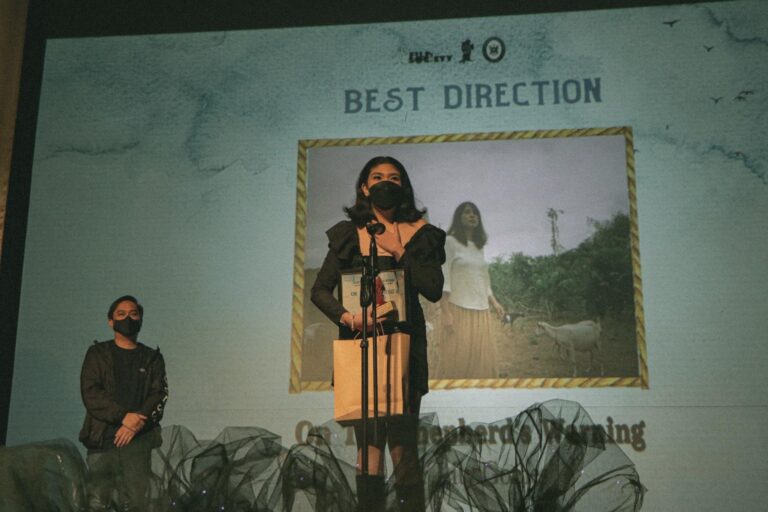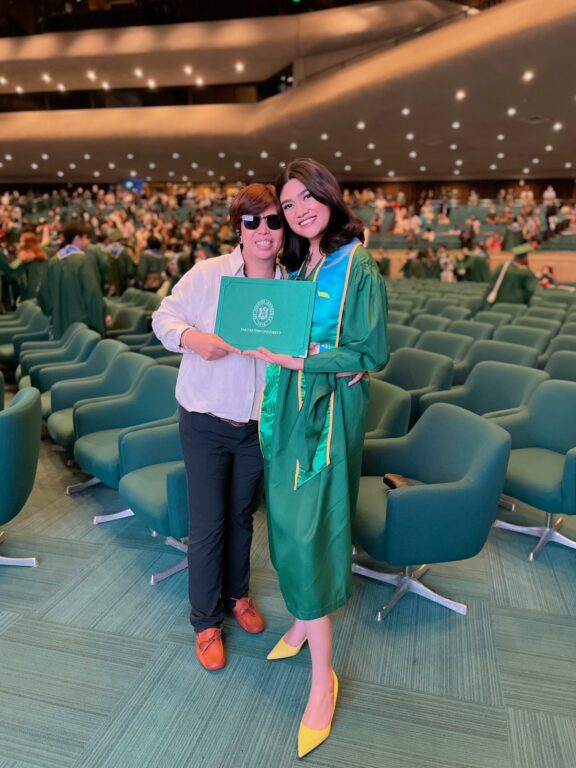
Lily Gomes is a young filmmaker, videographer and photographer who found her calling amidst the cultural mosaic of her homeland, the Philippines. Her commitment to progress through film, serves as a beacon of hope for aspiring creatives, inspiring them to carve their own path and leave an indelible mark on the world.
Lets get to knw more about Lily, a trailblazing director, whose boundless passion and fearless spirit continue to shape the landscape of Philippine cinema and beyond.
Lily: The Philippines is a hotpot of culture. Growing up in this country presents itself in different levels of understanding the self, and the society that revolves around me. I developed my early consciousness in the rural part of the country, a North-western coastside province called Pangasinan. The education I received provided me with adequate knowledge; like any other primary education, I was taught to know things long enough for me to be able to write them down on an exam paper. Given the systematic nature of it, my young curious self found herself yearning for more… an outlet, an expression.

My fondness for the creative medium slowly developed; from participating in class performances, writing my own silly little stories, joining the school newspaper team, and lots more I could barely remember. This was amplified during my senior highschool years, upon my moving to the bustling city capital, Manila. I found myself heavily involved with the school media organization. This has exposed me to many opportunities and avenues that allowed me to explore the spectrum of this field, hopping along every immersion that came my way, not fully knowing that all these tiny nodes of experiences are linked by an unrealized passion.
“My deep fascination with the creative industry can be found in different folds, it expands to different interests and expressions but all boils down to one intent- creating art and discerning its effects on society.”
Lily: From my middle-teen years, I involved myself in film productions. Although the specific role I wanted to play was quite not clear at that time, the exposure allowed me to navigate where my existing strengths suit well. I dove into the creative aspect of cinema, as all newbies do, thinking that the medium exists for a sole purpose: an outlet for creative frustrations. I knew I was capable of writing stories and visualizing how they will turn out, so I gambled on that to explore the directorial and screenwriting role through taking up a program that practices it.
Lily: The local industry has introduced me to a polarizing set of encounters. I was 18, in my first major involvement as a Festival Coordinator for a nation-wide student film festival, when I first came across questionable people from the industry. As a giddy student, my enthusiasm was easily taken advantage of in subtle ways. It attracted suspicious intentions and my being a young woman played a factor in it, but I did not allow myself to dive into the thought that my gender dictates how I am treated. Sadly, it has been a never-ending process of coming across and moving forward. From the frustration over the deep-rooted inequality and oppression, was a gradual understanding how these remote experiences led me to create my own direction as to who I surround myself with, and what I create out of it.
“I refueled my rage with love, and discovered that the two can amalgamate in a burning desire for change.”
Lily: Cinema has always been a powerful medium of influence, the filmic representation of reality helps shape how we perceive the world and our action towards it. Recalling all the past works I did, I found one common denominator: they voice out social struggles. Heavily influenced by the arthouse techniques, I find myself executing these narratives in an experimental manner. Exploring the capacity of film as a form is a limitless possibility. The act of contorting of the material itself is already a strong statement of defying the existing conventions. It is an exuberant process of playing around with an aspect which, in my case, usually targets production design, screenplay, performance, sound, and editing. This process heavily reflects the gibberish roots of these existing dilemmas.
Lily: On this date, the work that I am proudest of would be On The Shepherd’s Warning (2022). This is a capstone short film that I wrote, directed, and produced with some of the most talented people in my university. It explores the story of Leah, the town healer’s daughter as she closely observes an epidemic looming over their community; the more she steps closer, the more she finds out about the truth behind it. This film project has been my most direct feminist expression. It made me overcome my fear in writing raw, unhinged female rage. Seeing its physical form on screen feels like a gentle caress to all the previous versions of me that long waited to release the exasperation. This feeling alone, surpasses all the recognition it got locally, and across the globe.

There are also works outside film production that I would like to bring forward and put a limelight on. One of them is A Dictator’s Guide to Cinema, which is a webinar featuring some of the country’s iconic film practitioners that shaped the history through their works. This was produced to spark a discourse about the importance of cinema in the crucial periods of our nation, specifically during the Martial Law period, declared by the late dictator Ferdinand Marcos. It tackles how Philippine Cinema adapted to the social realities of the country and how the industry responded to the situation of that time, which initiated a movement, the Second Golden Age of Philippine Cinema, that became a standard point up until now.
“I am telling you that I am not out of my mind when I tell you that I have probably surpassed all levels of crazy when we had to burn down a house we’ve built for a film.”
Lily: Circling back to my previous statement, On The Shepherd’s Warning is an unhinged display of female rage. In the process of making it come to life, our production design team has created a pre-colonial, traditional Filipino house, mostly made of bamboo woods, and Amakan. This is the storyline’s main setting, and it represents society’s outdated views on genders. The team built this in 4 days with minimal rest. But in the last sequence of the film, as the main character displays her final act of anger, she burns down the house, symbolizing her freedom from what caged her womanhood.
Lily: Although film production has never failed to bring me joy, the dream end point for me would be to become a film scholar. I am a huge advocate of critical viewership, and cinema as a tool for education. The lack of importance shown for cinema in the country is very evident in the academic sphere. Only those who take up programs linked to it are exposed to resources that discuss the film scene extensively.
“I aim to contribute to the developing arena and promote the unrecognized weight of cinema as an instrument that can educate the masses on important stages of society. It evokes to enlighten the viewers that cinema is not just a form of entertainment, but a contained time and space that depicts social reality in which we can learn from.”
Lily: Three tips, not just for success but also progress:
Lily: To be honest I am only inspired by one person in life: my mom, the woman who single handedly raised me, faced all the odds across the globe to provide me the best life she can give, and never ceased to make me feel that I am loved, and worthy of all the great things life has to offer. She has been the main supporter in the track I have chosen, and I would not have expanded this far with her. I have learned to be fearless by watching her, and I try my best to do good for her to see that she did more than I can ever ask for.

Lily: The industry has a long way to go but progress is being seen, and I hope it continues to progress to a point where this artform establishes its importance to societal advancement, whether it be social, cultural, and economic. There is so much more to unfold from what the industry offers, given the proper opportunity and avenues. Alongside this, proper appreciation and criticism should consistently develop to produce a critical audience, and responsible filmmakers.
Dr. Carol Fischer Directs Final Play “Violet” at West Valley College
Interview With Peruvian Sound Engineer Fernando “Fico” Hoyle


Megan hails from the twin island nation of Trinidad and Tobago. She is a musician, singer/songwriter with a vast technical theatre background and can be called a rockstar of the creative world. Boasting a holistic understanding of multiple Creative Arts spanning a roughly 16 year career, while being an activist who is passionate about the empowerment of girls, womexn and the LGBTQ+ community, Megan exists at the intersection of the Creative and Cultural Industries and social change. She considers herself a citizen of the planet, having traveled considerably during her career, and is energized by her chosen family and professional networks that span the globe. Megan holds a Certificate in Digital Media Studies with a focus in Music Technology, BFA in Performing Arts with a focus in Theater Design and Production, a Master in Arts and Culture Management (hons) and has a vocation for coaching creatives. Megan also loves writing music, gigging, connecting with people of all cultures and prioritizes having the ocean waves underscore her daily life.
Read Full Profile© 2021 TheatreArtLife. All rights reserved.

Thank you so much for reading, but you have now reached your free article limit for this month.
Our contributors are currently writing more articles for you to enjoy.
To keep reading, all you have to do is become a subscriber and then you can read unlimited articles anytime.
Your investment will help us continue to ignite connections across the globe in live entertainment and build this community for industry professionals.